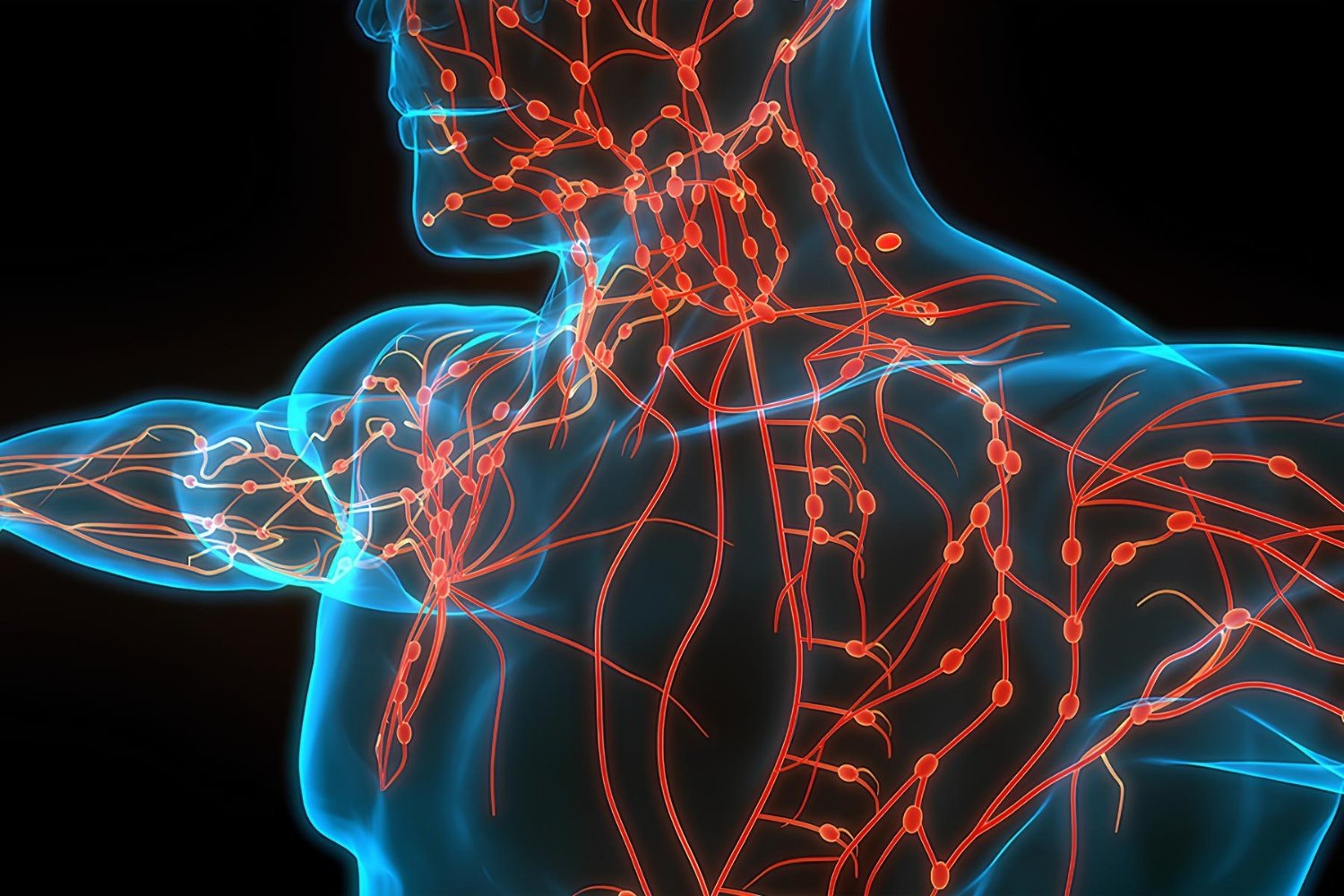
What are lymph nodes, and why are they important? Lymph nodes are small, bean-shaped structures that play a crucial role in your body's immune system. They act as filters, trapping viruses, bacteria, and other harmful substances to prevent them from spreading. Found throughout your body, especially in the neck, armpits, and groin, these nodes contain immune cells that help fight infections. When you're sick, lymph nodes can swell, signaling your body is battling an invader. Understanding lymph nodes helps you grasp how your body defends itself and why certain illnesses cause swelling in these areas. Ready to learn more? Let's dive into 28 fascinating facts about these tiny but mighty defenders!
What is the Lymphatic System?
The lymphatic system is a crucial part of the body's immune system. It helps maintain fluid balance, defends against infections, and removes waste products. Here are some fascinating facts about this vital network.
- The lymphatic system consists of lymph nodes, lymph vessels, and lymph fluid.
- Lymph nodes act as filters, trapping bacteria, viruses, and other foreign substances.
- Lymph fluid is a clear, colorless fluid that circulates through the lymphatic vessels.
- The spleen, thymus, and tonsils are also part of the lymphatic system.
- The lymphatic system works closely with the circulatory system to return excess fluid to the bloodstream.
Functions of the Lymphatic System
The lymphatic system performs several essential functions that keep the body healthy. Let's dive into some of these key roles.
- It helps maintain fluid balance by collecting excess fluid from tissues and returning it to the bloodstream.
- The lymphatic system plays a crucial role in the body's immune response by producing and transporting white blood cells.
- It helps absorb and transport fats and fat-soluble vitamins from the digestive system to the bloodstream.
- The lymphatic system removes waste products and cellular debris from tissues.
- It helps protect the body against infections by trapping and destroying harmful microorganisms.
Lymph Nodes and Their Importance
Lymph nodes are small, bean-shaped structures that play a vital role in the lymphatic system. Here are some interesting facts about lymph nodes.
- There are approximately 600 to 700 lymph nodes in the human body.
- Lymph nodes are found in clusters in areas such as the neck, armpits, and groin.
- They swell when the body is fighting an infection, indicating an active immune response.
- Lymph nodes produce lymphocytes, a type of white blood cell that helps fight infections.
- They filter lymph fluid, trapping bacteria, viruses, and other foreign substances.
The Role of the Spleen
The spleen is an essential organ in the lymphatic system. It performs several critical functions that contribute to overall health.
- The spleen filters blood, removing old or damaged red blood cells.
- It stores white blood cells and platelets, which are essential for immune function and blood clotting.
- The spleen helps fight infections by producing antibodies and activating immune cells.
- It plays a role in recycling iron from old red blood cells.
- The spleen can enlarge in response to infections or certain medical conditions.
The Thymus and Its Functions
The thymus is a small organ located in the chest, just above the heart. It plays a crucial role in the development of the immune system.
- The thymus is most active during childhood and adolescence.
- It produces T-cells, a type of white blood cell that helps protect the body against infections.
- The thymus shrinks and becomes less active with age, a process known as involution.
- It helps train T-cells to recognize and attack foreign substances while ignoring the body's own tissues.
- The thymus plays a role in preventing autoimmune diseases by eliminating self-reactive T-cells.
Interesting Facts About Lymphatic Health
Maintaining a healthy lymphatic system is essential for overall well-being. Here are some tips and interesting facts about lymphatic health.
- Regular exercise helps stimulate lymphatic circulation and prevent fluid buildup.
- Staying hydrated is crucial for maintaining proper lymphatic function.
- A healthy diet rich in fruits, vegetables, and whole grains supports lymphatic health.
Final Thoughts on Lymph Nodes
Lymph nodes, those small but mighty components of our immune system, play a crucial role in keeping us healthy. They filter harmful substances, produce white blood cells, and help fight infections. Swollen lymph nodes can signal various conditions, from minor infections to more serious diseases like cancer. Knowing their locations and functions can help you better understand your body’s responses.
Regular check-ups and being aware of changes in your lymph nodes can aid in early detection of potential health issues. While they often go unnoticed, these tiny glands are essential for maintaining overall well-being.
Stay informed about your lymphatic system, and don’t hesitate to consult a healthcare professional if you notice any unusual changes. Your lymph nodes are your body's silent guardians, working tirelessly to protect you every day. Keep them in mind, and they’ll keep you in good health.
Was this page helpful?
Our commitment to delivering trustworthy and engaging content is at the heart of what we do. Each fact on our site is contributed by real users like you, bringing a wealth of diverse insights and information. To ensure the highest standards of accuracy and reliability, our dedicated editors meticulously review each submission. This process guarantees that the facts we share are not only fascinating but also credible. Trust in our commitment to quality and authenticity as you explore and learn with us.
